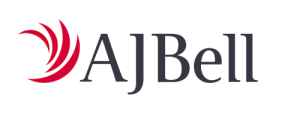During April, our net asset value return was -0.5% and shareholder returns were -1.3%, in comparison to the FTSE All-World Index return of -0.2%.
After significant volatility in March, equities were broadly flat in April, reflecting a relatively calm month for financial markets. Notably, US inflation prints for March continued to decline (5.0% versus 6.0%, previously), with eurozone (6.9% versus 8.5%, previously) and UK (10.1% versus 10.4%) inflation also moving lower – a strongly positive development for equities that has spurred hopes that interest-rate hiking cycles are coming to an end. Despite inflation easing sharply, core inflation (excluding the volatile food and energy components) has generally proved more persistent than expected across all regions, including the US. Persistent core inflation, fuelled by still tight labour markets and elevated wage growth, continues to be the foremost threat to markets’ pricing of rate cuts in the US by year-end. The focus now turns to the impact of tightening credit conditions on both growth and the interest-rate outlook in the wake of March’s US banking crisis, and whether further rate hikes may be necessary in the absence of sufficient disinflation in the latter half of 2023. Furthermore, there are growing signs of concern around the US debt ceiling deadline and whether an agreement between the Republicans and Democrats can be reached in time to avoid a US sovereign debt default.
Overall, global equities, as measured by the benchmark FTSE All-World Index, fell by 0.2% in sterling terms over the month, adding to moderate losses in February (-0.9%). Sterling was once again stronger over the month, which curbed returns for UK investors; over the year to date, it has appreciated by 4.3% versus the US dollar.
Over the previous month, defensive sectors, including consumer staples and healthcare, rebounded on speculation that tighter credit conditions increase the probability of recession. Household goods and home construction saw particularly strong performance following a more positive US Census Bureau’s March report on housing starts, as the ongoing decline in construction costs allowed developers to push ahead with previously approved projects. In contrast, basic materials performed poorly as mining stocks continued to see a reversal of gains made at the start of the year when the Chinese authorities announced an easing of zero-COVID restrictions. The easing of supply constraints and concerns around recession have proved a significant headwind for commodity prices over the year to date. Moreover, recent economic data suggests China’s industrial sector rebound is losing steam.
On a regional basis, returns were mixed, with Europe (+2.6%) and the UK (+3.6%) performing better than the FTSE All-World (-0.1%) and US (-0.3%). The Trust has continued to benefit from the US versus International equities convergence trade after reducing US exposure in early-February, with US valuations still elevated on a price-to-earnings and earnings-per-share (EPS) basis after a decade of very strong performance. China saw particularly poor performance in April (-6.5%); doubts over the country’s ability to sustain its economic rebound alongside ongoing geopolitical tensions around Taiwan weakened investor sentiment. The Trust’s underweight to China was therefore supportive of relative performance over the month. Across strategies, our Pyrford Global Equity strategy performed best, reflecting its material UK overweight and US underweight versus the FTSE All-World benchmark. The Trust’s Japanese Equity strategy performed worst relative to its regional benchmark, with stock selection being the key driver of underperformance.
Tesla Motors (-22.1%), which is held at an underweight to the benchmark, was the most significant contributor to relative returns in March, after the company reported a more than 20% drop in both EPS and net income for the first quarter. The Trust’s overweight position in Burford Capital (+38.6%) was also additive to relative returns, with the litigation finance provider securing a positive ruling in a major case that is expected to generate significant revenue for the firm. Underweight positions in large US technology stocks, notably Microsoft (+4.8%), detracted from relative returns for a second consecutive month, reflecting growing investor interest in stocks exposed towards the broader artificial intelligence theme, as well as the decline in US yields seen over the year to date.
We ended the month at a discount of 4.5%, widening from a discount of 3.7% at the end of March. Net gearing continued to be conservative at 3.3% (with debt at fair value) for month-end, reflecting our expectation that markets will remain volatile in the short term, as inflationary pressures persist, and the risk of recession rises. Nonetheless, F&C Investment Trust’s corporate structure makes us well-placed to withstand further market volatility, and we remain focused on the long-term opportunities for the benefit of our shareholders.










